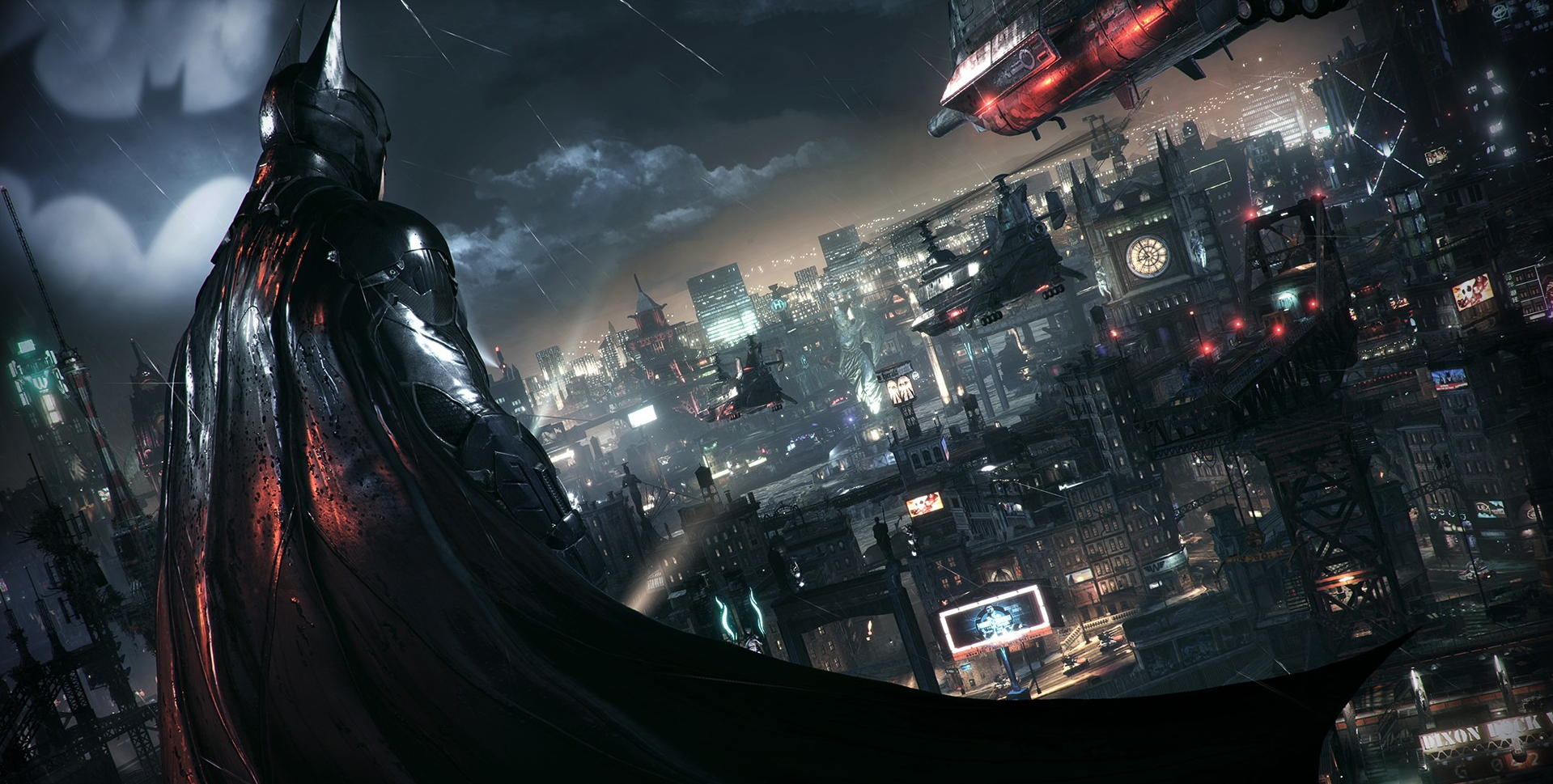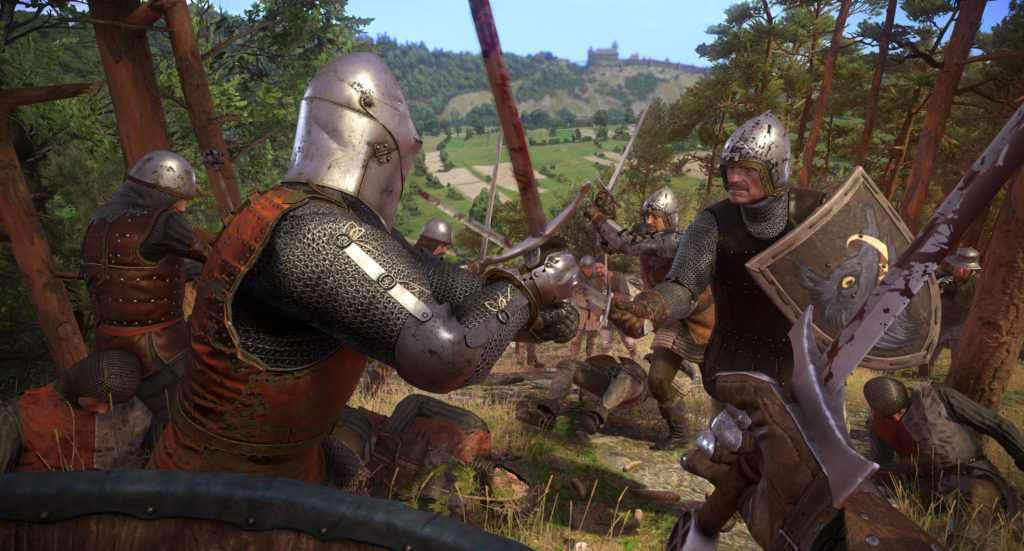
Glitches in video games are hardly anything new, and it’s rare to find a video game that doesn’t have at least a few. Some have to be triggered deliberately, and some are quite amusing, but when a new release is riddled with glitches and technical issues it can ruin the experience of a game. With just how complex games can be, it’s unreasonable to expect that no glitches will slip the net, so long as they are not too severe, and in the case of multiplayer games, patched within a reasonable time-frame. However, there are more than a few cases where a new title was released in a less than satisfactory state. Traditionally, when a consumer buys physical items, it can be fairly easy to tell when a new product you have bought does not work properly and you can return it, but with video games, the lines are perhaps more blurred about what constitutes a working product.
A high-profile example we can draw from would be Batman: Arkham Knight. The PC version of the game was reported to have a huge number of technical issues that many players felt made the game virtually unplayable. Warner Brothers Games initially apologised and suggested that Steam users make use of the refund feature if they were unhappy with the game, whilst also pulling the PC version from retailers. They eventually offered full refunds for all Steam users who bought the game. However, this refund offer only came after a second attempt at releasing the title on PC, and players who were unable to get a normal Steam refund had to wait until near the end of 2015 to make use of it, when Warner Brothers Games announced they were removing it from sale back in June. The refund only applied to those who bought the game through Steam, so gamers who picked up the title through another online retailer or through some special offer were still left out. When the publisher of a new game pulls it from sale, then re-releases it, and finally offers full refunds to all who bought it, it’s pretty safe to say the game was not fit for use. A more recent example of a problematic game is Kingdom Come: Deliverance. The game was praised for many of its features, but there was no getting around the fact that it had some serious issues, and a lot of (admittedly very funny) videos on Youtube appeared showing the glitches people were encountering. The game makes a fantastic effort at creating an authentic medieval world, but when enemies are in the middle of fighting you suddenly sheathe their weapons and stroll away with several arrows protruding from their chest, it can really dampen the experience. In fairness to the developers, several large patches were released fairly quickly, but if the game was not outright unplayable on launch, it was certainly close.

Glitches are one aspect of a game being in working order, another is performance and optimisation. Betas and early access games have some defence here, as they are by their definitions unfinished products. However, when a game has had a long early access or beta period, it surely follows that a developer has less excuse to justify poor performance on a full release, as they should have a good idea of where the game sits? There is also the issue of splitting the performance of consoles, which are fixed pieces of hardware, compared to PCs, where each one is different in terms of physical components, operating systems, and other factors. There is no great excuse for releasing a badly optimised game on Xbox One or PS4, as the hardware specifications are known, and someone buying a new game for their console should reasonably expect it to run properly on their chosen platform, provided they have not modified it in some way. PLAYERUNKNOWN’S BATTLEGROUNDS has been criticised for its poor performance on PC, even after the game left early access. Some of the developer’s defenses may have been valid, but they had no excuse when the Xbox One version was met with a huge number of complaints about its performance. PCs are a bit trickier, because as well as making sure a game can run effectively on various types of hardware, there are also factors outside the developers control that could affect performance. Players could be trying to run a game on a system that is simultaneously trying to run several others programs. It could also have a nearly full hard drive or one that has several viruses that slows their system down. There are also cases where players report poor performance when someone with a less powerful system might be running it without issue, sometimes just due to a bad installation or a graphics card needing a driver update. There is also the issue of what performance you should expect from your hardware. For PC titles, minimum and recommended system requirements are released. If I met the minimum requirements of a game, but not the recommended ones, I shouldn’t expect to be able to run it on high graphical settings. However, I should be able to run the game, even on its lowest settings, without any performance hiccups.
It’s difficult to determine an accurate answer for a question for the question I posed in the title of this article, as there are no set of quantifiable standards for what is considered a working video game, and setting them would be largely down to subjective opinion. For glitches, any single glitch that could be considered game-breaking in the sense that it could prevent you from progressing further in a single-player game, or gives a major unfair advantage or disrupts the flow of a game in a multiplayer title would make the game unfit for use, and the game should not be released if players would come across it after launch. If a glitch was discovered a reasonable amount of time after a full release or on a small number of player’s computers/consoles, it could be considered excusable if a patch is quickly issued once the issue becomes known. Cases like the aforementioned Kingdom Come: Deliverance are a bit trickier, where there were a multitude of issues taking place, but where no single issue broke the game entirely. Although the game was patched quite quickly, there were too many issues on launch for the game to be considered complete. Developers and publishers know exactlywhat state their games are in when they release them, and it would be hard to argue that, in the case of Kingdom Come: Deliverance, they were unaware of so many glaringly obvious problems. Considering games are knowingly released in such a state, it should add some weight to the argument of whether or not a consumer deserves a refund when they have bought a title with this many issues. For performance, there is little excuse for releasing a game that can’t function properly on a console that the game is designed to be played on and has a fixed set of hardware, provided the user has not tampered with their console in some way. As previously mentioned, PCs are a more complicated problem. If someone buys a new game and meets the minimum system requirements of that game they should be able to expect to play that title as a bare minimum on its lowest graphical settings with a framerate of at least 30FPS, as long as that is the only significant programme they are running at the time and their hardware and software are working correctly. Performance issues occurring on a small number of machines, for example, the game having difficulty working with a particular model of graphics card, could be acceptable provided a patch is deployed quickly. Whilst there are cases where a PC user can’t run a game due to what they have done with their system, poor porting and badly optimised PC titles are far too common, and there should be a bigger emphasis on minimum standards.




